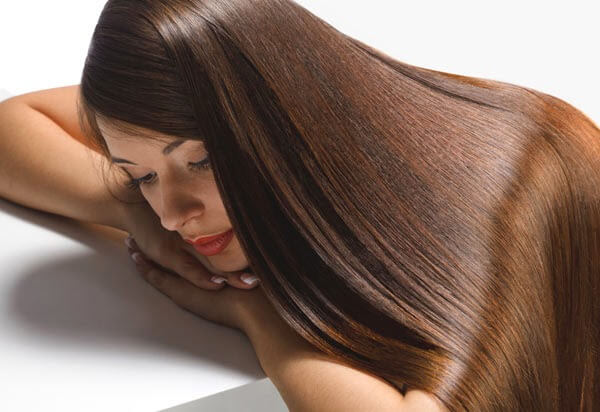In the vast world of hair care, there is no shortage of treatments, masks, and products that promise to rejuvenate, strengthen, and protect your locks. But amidst the sea of choices, the role of proteins, particularly keratin, stands out as one of the most crucial components in maintaining hair strength and health. This blog post will delve deep into the world of proteins, their benefits, keratin treatments, DIY masks, and times when one might need to avoid overloading on proteins.

Understanding Hair Structure and the Role of Proteins
Before delving into the specifics of keratin treatments and masks, it's essential to understand the basic structure of hair and where proteins fit into the picture.
Hair Anatomy: At the fundamental level, hair is made up of a protein called keratin. This protein forms the structure of the hair shaft, which emerges from the hair follicle located beneath the scalp's surface. Surrounding the hair follicle are tiny blood vessels that nourish the hair bulb, where new hair cells are formed.
Why Proteins Matter: As the new hair cells form, the older ones are pushed out and start to harden, creating the visible hair strand. This hair strand, predominantly made of keratin, relies on the integrity of this protein to remain strong, elastic, and resistant to damage.
The Marvel of Keratin Treatments
Keratin treatments have become a rage in salons worldwide due to the incredible results they promise, from straighter hair to fewer frizzes.
What are Keratin Treatments?: At their core, keratin treatments are a semi-permanent hair straightening treatment that smoothes and adds shine to frizzy hair. These treatments work by applying a keratin solution to the hair, followed by the use of a flat iron to seal it in.
Benefits:
- Frizz Reduction: The primary benefit of a keratin treatment is the noticeable reduction in frizz, making hair management easier.
- Added Shine: Hair looks more lustrous post-treatment because the keratin fills in the porosity of your hair.
- Shorter Styling Time: Hair becomes more manageable, reducing the time taken for styling.
- Protection: The added layer of protein helps shield hair from external damage, like pollution and sun exposure.
However, it's worth noting that while keratin treatments have numerous benefits, they also use chemicals that can be harsh on the hair and scalp. It's essential to do thorough research and consult with a professional before opting for this treatment.
]Dive into DIY: Protein Hair Masks at Home
If salon treatments are not on your radar or seem a bit on the expensive side, DIY protein masks can come to the rescue.
- Egg Yolk and Olive Oil Mask: Mix two egg yolks with two tablespoons of olive oil. Apply this mixture to your hair and let it sit for about 20 minutes before rinsing. The protein from the egg yolk strengthens the hair, while the olive oil provides moisture.
- Greek Yogurt and Honey Mask: Combine half a cup of plain Greek yogurt with two tablespoons of honey. Apply to your hair, covering it from roots to tips, and let it sit for 30 minutes. The yogurt offers a protein boost, while the honey acts as a humectant, drawing in moisture.
- Mayonnaise and Avocado Mask: Combine two tablespoons of mayonnaise with half a mashed avocado. Apply this creamy mixture to your hair for about 20 minutes. Mayonnaise, being rich in oils and eggs, offers both moisture and protein, while avocado nourishes and hydrates the hair.
These DIY masks can be a delightful addition to your hair care routine, but remember that consistency is key. Using these masks once a month can lead to stronger, healthier hair over time.
When to Steer Clear of Excessive Protein
While protein treatments can be a godsend for many, there is such a thing as too much protein for your hair, a condition termed ‘protein overload.'
Signs of Protein Overload:
- Hair feels stiff or straw-like
- Hair becomes brittle and breaks easily
- Lack of hair elasticity
- Tangling and matting
What Causes It? Over-reliance on protein treatments, products, or masks can saturate your hair with more protein than it needs, leading to the above symptoms.
Balancing Act: If you suspect protein overload, switch to moisturizing treatments and products. Over time, with a balance of moisture and protein, your hair will regain its health and vitality.
The role of proteins, especially keratin, in hair health cannot be overstated. They are essential to the strength, structure, and overall wellbeing of our locks. While treatments like keratin procedures and DIY masks can be incredibly beneficial, it's essential to find a balance and listen to your hair's needs. Too much of anything, even something as crucial as protein, can be detrimental. Be proactive, stay educated, and your hair will thank you for it!
